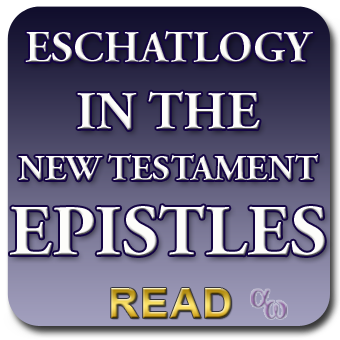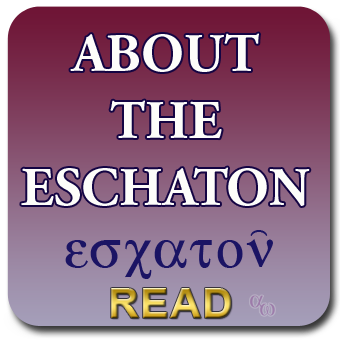
by Andrew Corbett | Dec 27, 2020 | Eschatology |
Much of what is taught by Bible-prophecy teachers about the end-times” is grounded in Paul’s two epistles to the Thessalonians. It is claimed that in First Thessalonians, Paul introduced the notion of a rapture. And it is believed that from Second Thessalonians, he introduces believers to some revelations about the “Antichrist”. The Apostle certainly does share some divinely inspired insights into what was future to his original audience. But the modern reader may not understand how future it was to these Thessalonians – which may mean that it is not future to us.

by Andrew Corbett | Apr 5, 2018 | Eschatology |
New Testament epistles are sprinkled with eschatological references which have led to confusion and the belief that the rules of hermeneutics must be re-written to accommodate particular eschatological systems. We will now survey how these Epistles make eschatological references and how we might best understand them.
A Sense of Imminence
¶ The end of all things is at hand; therefore be self-controlled and sober-minded for the sake of your prayers.
First Peter 4:7
The eschatology found in the New Testament Epistles conveys an expectation of imminence. Each of the writers had a sense that something was about to happen very soon. It could be argued that they were misguided and that the Scriptures accurately recorded their misinformed views. We see evidence of this sort of thing throughout the Old Testament where misinformed human perspectives were accurately recorded in God’s inspired Word. This includes such statements like, “from the rising of the sun” (Psalm 50:1; Isaiah 45:6; Malachi 1:11). Of course, we know that the sun doesn’t rise but from the perspective of the human authors it appeared to. But this doesn’t seem to be the sort of thing happening in the Epistles. Unlike the genre of the Psalms or Prophets, these eschatological statements found in the Epistles are not poetic. They are presented as statements of fact – often linked to an injunction (1Peter 4:7; Hebrews 10:24-25). If it is the New Testament perspective is actually just the accurate recording of misguided human opinion, it then makes the linked injunctions (moral commands) redundant.

by Andrew Corbett | Mar 3, 2018 | Eschatology |
The End. That’s what the Greek word “eschaton” means. But a question that some are now asking is, “The end of what?” Up until recently most Christians would have said- the world, but now good Biblical scholarship is shedding greater light upon this highly controversial word and revealing that most of us may have been wrong!
When I went to church as a young boy, ‘End Times’ teaching was all the rage. Afterall, there were wars in the Middle East, famines in Africa, natural disasters in Asia, and economic struggles in Europe and America. There were conspiracy theories, global uncertainty, a worldwide fuel crisis, and the emerging cashless society. All of these things were apparently predicted in the Bible many thousands of years ago as being the last signs before the end of the world. As the last three decades have unfolded however, it has become obvious that none of these things have led to the end of the world, and now most people realise that the Bible doesn’t even make reference to them – let alone pinning the triggers for the end of the world upon them! With so much error in this speculation it’s little wonder that many Christians have put eschatology (the study of ‘final things’) either in the too-hard basket or now regard it as not worth worrying about because nobody knows anyway.




